Dear Dr. Christian,
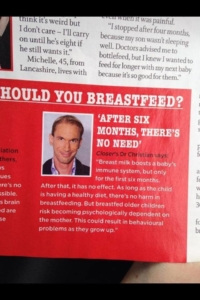 I don’t know who you are. I don’t live in the UK and I don’t read Closer, but I have had the misfortune of being exposed to comments you made about breastfeeding in a recent issue. In five sentences you managed to expose yourself as not only ignorant about the medical research on breastfeeding, but a liar as well as you pulled information out of thin air regarding possible psychological consequences of full-term breastfeeding.
I don’t know who you are. I don’t live in the UK and I don’t read Closer, but I have had the misfortune of being exposed to comments you made about breastfeeding in a recent issue. In five sentences you managed to expose yourself as not only ignorant about the medical research on breastfeeding, but a liar as well as you pulled information out of thin air regarding possible psychological consequences of full-term breastfeeding.
Let’s start where you start: “Breast milk boosts a baby’s immune system, but only for the first six months. After that, it has no effect.” I can only assume you have misread the vast amount of literature on the topic which recommends exclusive breastfeeding for the first six months and then continued breastfeeding complemented with solids thereafter. If you listen to the World Health Organization, the benefits of breast milk are such that the recommendation is to breastfeed for a minimum of two years. Yes, two years. Do you know how they got there? Research.
You see, your statement would assume that the immune system is either (a) complete at six months or (b) nothing we do can contribute to its development. We know conclusively that (a) is false, just ask any immunologist, which leaves us with (b). For (b) to be true, there would have to be no medical benefits of breastfeeding past six months, yet there is quite a bit of research on cancers and breastfeeding that has found the “benefits” of breastfeeding (they aren’t benefits, rather not breastfeeding is the risk based on evolutionary norms, but research still speaks in terms of benefits so I will utilize the same language herein) in “protecting” against certain forms of cancer. Importantly, this effect is strongest when looking at breastfeeding greater than six months compared to breastfeeding for six months or less What about the myriad other diseases that breastfeeding “protects” against? Well, we know in the USA that if 90% of women exclusively breastfed for six months, they would save $13 billion in health care costs and save 911 lives[2]. Now, this is only the first six months, but if you believe breast milk magically changes at six months such that a day after all those benefits just cease, I have a bridge I’d like to sell you too. In fact, researchers have examined the immunological elements in breast milk and guess what? They are stable in the first two years (and they simply haven’t examined beyond that so we can’t make any claims about breast milk post two years)[3]. This means that we can expect to have immunological benefits for at least that long. How’s that for helping a baby’s immune system? Next you claim, “As long as the child is having a healthy diet, there’s no harm in breastfeeding.” Okay… what?! Back up… Who’s talking about harm? You’re now implying that somehow breastfeeding could be harmful. Not only that, but that it’s harmful for kids who don’t have a healthy diet when in reality those are the children who would most benefit from breast milk! Clearly you have no idea what’s in breast milk so let me give you a breakdown of breast milk at an even later age than your six month limit: In the second year (12-23 months), 448 mL of breastmilk provides[4] How could this possibly ever be harmful? Or, more to the point, how could this not be beneficial? At six months of age – heck even a year – most babies or toddlers are not eating enough calories to obtain all of their nutrients. In fact, a third to half of parents report their toddlers are picky eaters or don’t eat enough[5], and have you met a six month old who can consume enough solid food to survive? I didn’t think so. Let’s be clear: Not only is breast milk not harmful, it offers nutrients and immunological elements that help baby and toddler. Now we’re at your closing, which is where the whole pulling things out of thin air comes into play. You claim, “But breastfed older children risk becoming psychologically dependent on the mother. This could result in behavioural problems as they grow up.” We’re out of ignorance and into bullshit (pardon the language), aren’t we? Nothing like instilling fear in parents to get them to turn against breastfeeding, right? First, let’s be clear, for the vast majority of human history children have breastfed well beyond six months. Normal, natural weaning occurs most frequently between the ages of three and five[6], though of course there are children who fall outside this median range. Are you suggesting that every human being prior to our modern culture was psychologically dependent on their mother and thus had behavioural problems growing up? Second, I’m quite curious what type of independence you think babies have psychologically. All of the babies I know are psychologically dependent upon their caregivers for support and comfort. As we know from history and research, babies not given this psychological support and comfort (and instead left to their own devices) suffer severe behavioural problems, mental health problems, and in the worst cases, death[7][8]. For many babies and children, breastfeeding is their preferred means of comfort (though of course it is not the only means by any stretch). This myth of baby independence does all of our children a disservice by forcing independence on them when they are not ready for it, depriving them of the foundation they need to truly be independent down the line. Read up on the behaviours of children from current hunter-gatherer tribes where these children are breastfed full-term and try to come back and claim these kids suffer from psychological dependence (as a negative connotation, not the normal psychological dependence that is expected in infancy and childhood) or behavioural problems[9]. I dare you. All this said, breastfeeding at all or breastfeeding beyond six months will not be for every mother or every family. There are too many factors that we simply don’t have control over that can end a breastfeeding relationship at any stage – including before it’s begun. However, what you have said here is so anti-breastfeeding, it needed a response. I sincerely hope for the presumably many readers of Closer that you are able to look at the ignorant and factually incorrect statement you have made and issue a retraction and apology. No mother, and certainly no baby, deserves to have this ignorant and incorrect driven paraded around in a public forum from a so-called “expert”. Sincerely, Tracy Cassels p.s. There as been a “retraction” which include some comments from Dr. Christian which I would like to address here: “Advice on breast feeding is always changing. The World Health Organisation recommends breast feeding for up to two years, while the NHS recommends breast feeding for the first six months.” [1] Davis MK, Savitz DA, & Graubard AI. Infant feeding and childhood cancer. The Lancet (1988); 332: 365-368. (For more information and a far more detailed analysis, see https://gku.flm.mybluehost.me/evolutionaryparenting.com/two-bs-and-the-big-c/) [2] Bartick, Melissa, and Arnold Reinhold. The Burden of Suboptimal Breastfeeding in the United States: A Pediatric Cost Analysis. Pediatrics 2009; 125: 1048-56. [3] Goldman AS. Immunological components in human milk during the second year of lactation. Acta Pediatrica Scandinavia 1983; 72: 461-2. (To read more on the immunological components in breast milk, see http://kellymom.com/nutrition/milk/immunefactors/) [4] Dewey KG. Nutrition, Growth, and Complementary Feeding of the Breastfed Infant. Pediatric Clinics of North American 2001; 48. [5] Reau NR, Senturia YD, Lebailly SA, Christoffel KK. Infant and toddler feeding patterns and problems: normative data and a new direction. Journal of Developmental and Behavioral Pediatrics 1996; 17: 149-53. [6] http://www.kathydettwyler.org/detwean.html (A summary by Dr. Dettwyler on her anthropological work looking at weaning times in humans and other primates) [7] Montague A & Matson F. The Human Connection. New York: McGraw-Hill, 1979. [8] Sigal JJ, Perry JC, Rossignol M, & Ouimet MC. Unwanted infants: Psychological and physical consequences of inadequate orphanage care 50 years later. American Journal of Orthopsychiatry (2003); 73: 3-12. [9] Diamond J. The World Until Yesterday: What Can We Learn from Traditional Societies? Penguin Group: New York, NY, 2012.
EvolutionaryParenting.com
Where History Meets Science in Parenting
Me: Actually not really. Different places make different recommendations, but the WHO recommendation of 2 years has been in place since at least 2007. The WHO bases its policy on health and medical research. Many countries base opinions on feasibility of what members of that country can be expected to do as well as cultural norms. Personally I prefer to take the global view of WHO whose sole focus is on the medical benefits for babies, children, and mothers.
“Breast milk is beneficial to a baby’s immune system for the first six months, but there is no harm in continuing to do it as long as the child has a healthy diet.”
Again with the “no harm”. No one has suggested harm, but the fact that you mention this in the negative as well as with the caveat that the child has a healthy diet (implying it’s not good for those without a healthy diet when in fact that’s the group who benefits most from it) suggests you view it as a negative. I can think of no other reason for the phrasing.
“If a child is being breast fed until eight, this may make them overly dependent on their mother. However if they are being breast-fed at four there is no harm in this.”
What are you basing this distinction on? What research? I ask because there is none that suggests a problem or “over dependent” behaviour at 8, 7, 6, or 5. When a child weans is up to the child and mother. Trying to scare moms into thinking something bad will happen is unfair and unfounded.
“I support women who want to breastfeed and would never wish to discourage anyone from doing so.”
Except write comments like the above and retractions like this that continue to place breastfeeding in a negative light and promote inaccurate information?


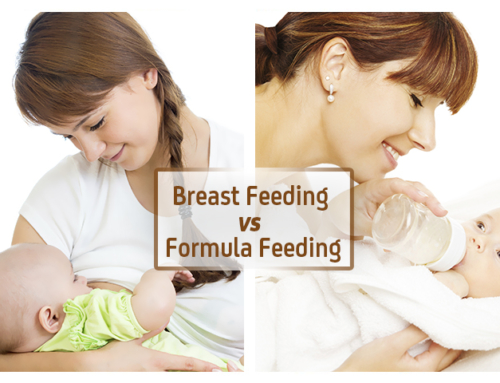
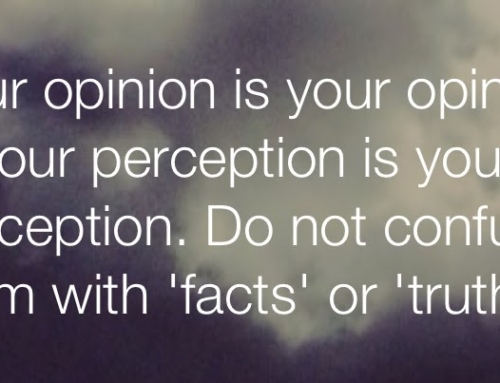
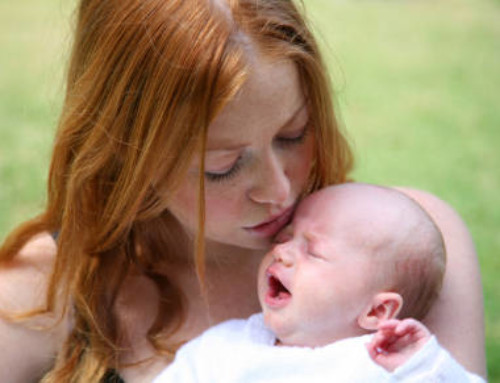
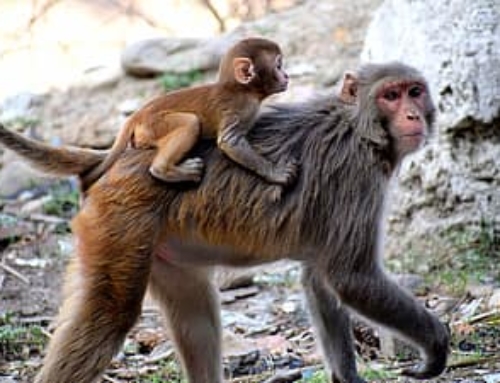
Can you actually make sure this guy sees this? Can it be sent to the magazine it was published in? This type of ignorance is harmful and needs to be addressed at the source!
I personally don’t know how but if people do, send along the information 🙂
He’s on twitter @DoctorChristian and has had a fair amount of ‘feedback’! Always worth remembering that ‘Closer’ is on a par with the Daily Mail. They print stupid, controversial things to rile intelligent people and get more exposure…a bit like a printed form of the lovely Katie Hopkins – have you come across her? She’s a gem 😉 P.S. Thanks for being an evidence-based advocate of these things…
For the first time in my life I saw something that this Ms. Hopkins wrote!!! I had never heard of ‘Closer’ until now – good to know it’s like the Daily Mail 🙂
We’d love to hear from you and you can reach the Closer Online team by:
Emailing us at closer@closermag.co.uk
Calling us on 0044 20 7859 8463
Tweeting us @closeronlineCloseronline.co.uk
I felt free to look up the adress of the magazine and it would be great if you could let them know what you said here. I think britain is very up tight… many have very weird opinions on child education and breastfeeding in general. I was kiving there for 2 years and had to shake my head many times over what they thought was a fact…
Thank you for your post!
Jenny
I have forwarded the page to closer magazine.
The NHS actually support the WHO recommendations of exclusive breastfeeding for the first 6 months and as part of a healthy diet to 1 year and beyond (1 year being the only difference). Dr Christian does not support breastfeeding – he is known for derogatory tweets using language such as breastapo and other such terms.
see this – http://www.analyticalarmadillo.co.uk/2012/01/breastfeeding-nazi-for-real.html
You can send him a link to this on twitter – he is always on there!
Babymilkaction have been in touch with him regarding the matter.
Also, if you look him up on the GMC (General Medical Council) you will find he is not a doctor, he is qualified but is not registered with the GMC as a GP or a Specialist. He is just a pop Doctor who makes his money on tv and in magazines spouting rubbish like this!
Hi Tracy, thank you for your fantastic response to the Dr Christian Closer article; I really hope Closer publish it. I am a breastfeeding Mum and incidentally a doctor from the UK where Dr Christian somehow seems to have become a celebrity “expert”. As the article demonstrates the fame has clearly clouded his ability to practice evidence-based medicine. I find it very telling that even though he IS a qualified doctor, registered and licensed to practice, he is not on the specialist or GP register. Given that he qualified over ten years ago, ample time to complete specialist or general practice postgraduate training, it is tempting to assume that he either couldn’t be bothered and/or wasn’t good enough to get on a specialist training programme. This makes him an expert in precisely nothing and certainly not breastfeeding.
Inaccurate and incendiary articles by self appointed experts like Dr Christian will do nothing for the already very poor breastfeeding rates in the UK and that makes me very sad and angry. Thank you for being such a great advocate. On a personal note I wanted to say how much I enjoy and have learned from your posts. I have found being a breastfeeding Mum in a town where bottles are the norm quite an isolating experience but I have derived a lot of support from EP.
Thank you so much 🙂 I had no idea that was what it took to be a doctor – I’ve had more education than that working on my PhD!!! It’s just so frustrating seeing the comments come from clearly ill-informed individuals supporting these asinine views. I certainly hope things change soon.
[…] you’d like to read more stats, there’s a fantastic post here at Evolutionary Parenting; there’s also a fantastic fact sheet on breastfeeding past infancy […]
Lets beat this GP over the head just because he isn’t a specialist. How many GPs do you know who have given incorrect information about breastfeeding or solids? There are many. Breastfeeding to a certain age is a personal preference or sometimes a necessity.
Maybe you should look into what he has achieved before you go bashing someone for having their own opinion. This Dr saved the life of a little girl with a rare Leukemia. She had verrucas which grew out of control. Every Dr or specialist tried topical treatments, he had her immune system tested and diagnosed her and saved her life.
GPs have a broad knowledge on many topics, those who breastfeed (I did for 7 months before my son failed to gain weight for 1.5 months) and behave like this, you are no better than the people who make snide comments at mothers who breastfeed in public. Women who breastfeed and want knowledge will not turn to Closer magazine for their information they will turn to WHO or the ABA or other specialised organisation. Welldone for being rude about someone who has saved the life of little girl.
Actually women are influenced by the comments and attitudes around them. I will absolutely be rude to someone who is ignorant and spreads false information. Information that also can cost babies their lives. This isn’t about his “opinion” but about information he is stating as fact that’s horseshit. That’s irresponsible and against his ethic of “do no harm” as a doctor. Sorry, but saving one life by ordering a test does not absolve someone of being responsible in their profession forever. If so, every oncologist could claim as much.
You’ve got to be kidding. She wasn’t being rude at all. She was telling him like it truly is since he is obviously pretty ignorant. Not only about human milk, breastfeeding and the psychology of children but about giving opinions and making remarks about the subjects of which he has no knowledge.
He may have “saved” a little girls life but I’ll bet he didn’t know that giving her human milk might have been of benefit to her also while she was healing.
He needs to keep his mouth shut when he doesn’t have any idea of what he is talking about.
So a doctor “saved” the life of a little girl on a tv show he co-stars in, in which he is supported by a team of reasearches.in which they wouldn’t present him ina negative light, Is anyone supprised? Isn’t it supposed to be his job? does that mean he speaks the gospal truth about all topics? If all GPs where correct 100% of the time there wouldn’t be the risk of misdiagnosis. I was once told I just had a cold and to rest, next day a different doctor prescribed steroids for my chest. my father in law was told he was fine, his leg was swelling due to injury, he was lucky not to die as he actually had a blood clot. aproximate knowledge on many subject does jot make them specialists in all.
Education is for everyone, false facts simply make people look ignorant and uneducated when true fact are presented. It has noting to do with the author if he makes himself look like a fool.
Thank you so much for this wonderful post. I’m quite shocked at what this supposed Dr wrote regarding breastfeeding if I am honest. Where on earth did he pluck this ridiculous information from and the fact that he is trying to pass it off as fact, is just an absolute joke! Reading his silly words has really angered me. What a fool!